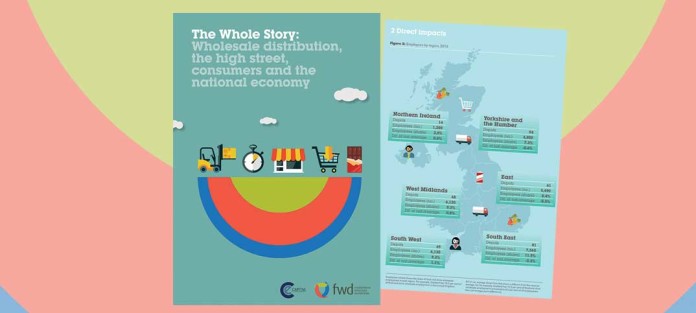Wholesale needs to speak up, rather than let multiples do all the talking, argues Nick Shanagher.
There is nothing like a good statistic to help form opinions. Open any newspaper and discussion of where people shop for food and it is anchored on Kantar data. Read any category advice and it is likely to kick off with a favourable statistic from Him! that tells you how people think.
Politicians especially love a good statistic to kick off a discussion about policy. Supermarkets oblige, regularly emphasising how many jobs they create.
After all the Tesco-bashing, you may have noticed the recent media coverage of the places that are losing out now the ‘space race’ is over. The TV cameras were in Wolverhampton last month to show a brownfield site ready for a store that will never come. Local people were lining up to say that they might be worse off as a result as there were not a lot of jobs around.
For the wholesale channel, it feels like the devil has all the best tunes, as large grocers get to shape the debate. On one side, you have a globally significant corporation and on the other, a company with a customer base few consumers know about. Clarity versus uncertainty!
This may be about to change. The Federation of Wholesale Distributors (FWD) is determined to tell the story of the independent channel better.
The Whole Story, the report launched by the FWD late last year, works hard to explain the importance of wholesale to the national economy.
The 72,000 retail grocery shops and 330,000 foodservice outlets supplied by wholesalers collectively support more than 1.1 million jobs – two and a half times as many as Tesco provides and more than the next four largest multiples combined.
The 735 cash & carry and delivery depots included in the report’s scope buy more than £26bn worth of goods from manufacturers for resale, which provides liquidity and a path to market for a significant part of the economy. These depots also employ 66,000 people.
Downstream, the wholesale channel plays a pivotal part in the success of more than 400,000 outlets that employ 890,000 people. For many of these businesses, their wholesale suppliers are key sources of business advice and market intelligence.
In launching the report, James Bielby, chief executive of the FWD, claimed food and drink wholesalers play a vital role in the economic and social health of the UK. It is an important claim.
“In a retail and catering sector where the largest players have historically had the loudest voice, this report redresses the imbalance by demonstrating the enormous value of wholesale distributors and their supply chain partners in improving consumer choice,” he says.
The report is only a start. It makes a complex story relatively simple. But it is already based on data that is nearly two year’s old in some cases. Another weakness of the data is that it is static.
What the wholesale industry should consider is regular collaboration on data to show what is happening in the important independent channel. Perhaps the easiest target is to collect the buying data from the channel and tell a story to key decision-makers (politicians and corporate strategists) about what the data tells us about the state of the UK economy.
Capital Economics, which wrote the report for the FWD, has split the UK into 12 regions, which allows for a second set of stories about winners and losers. While multiples can only speak to their self-interest, the FWD has the opportunity to shine a light on what thousands of entrepreneurs are doing nationwide.
This is an untold story that will help wholesalers, their suppliers, their customers and outside stakeholders make better decisions. Surely one for the 2015 wish list?








